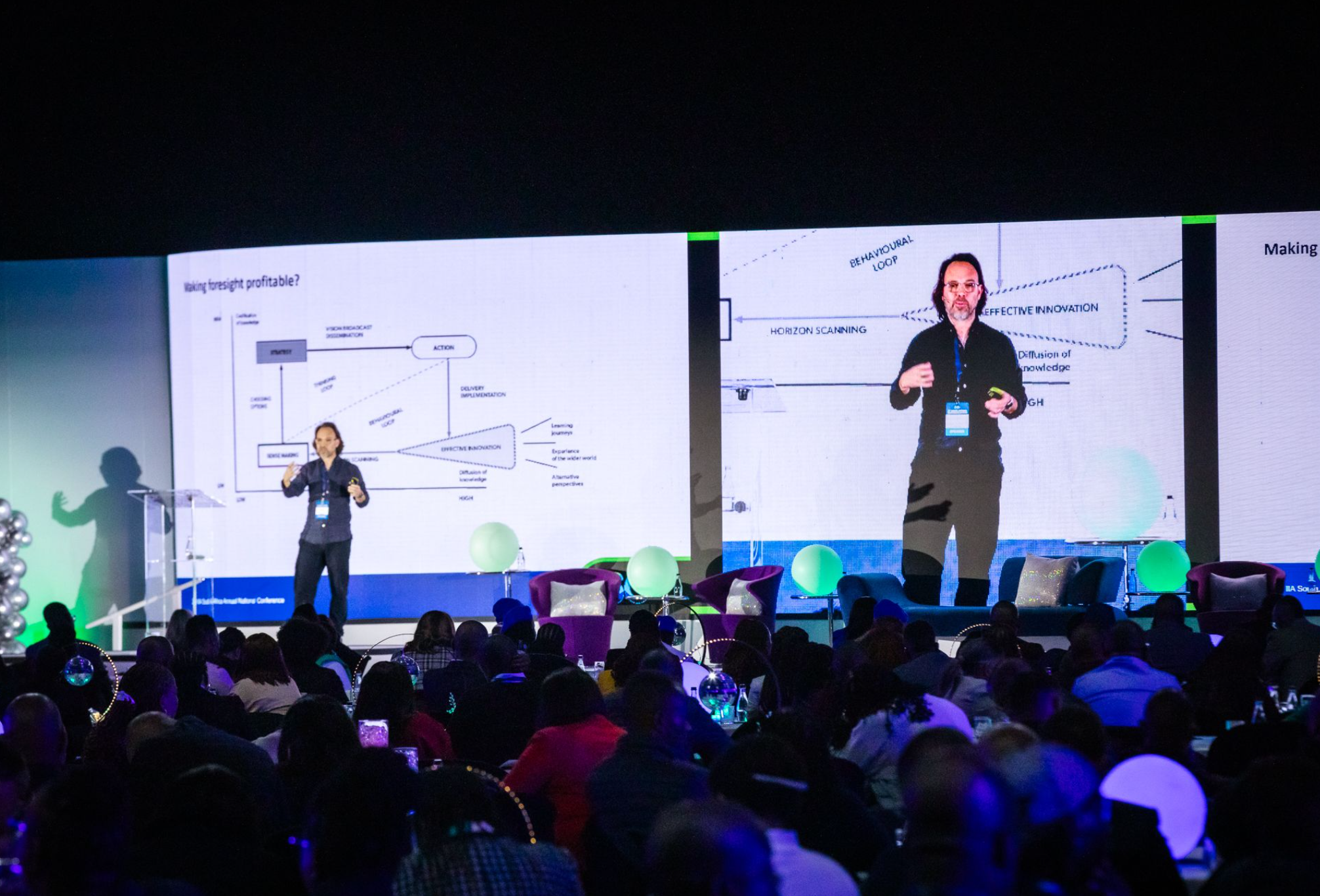Creating the conditions under which people innovate
Are there better alternatives to toxic work-like-hell cultures?

Friday:
Was at a retirement get-together: The retiree worked at a company that we have previously lampooned here, but the name of that company is now not important. What we will cover is ubiquitous. It is universal.
Saturday:
Finally had the opportunity to see Hayao Miyazaki's animated movie masterpiece "Spirited Away" at the Labia movie house in Cape Town.
Toxic Work-Ethic
We recently published a take-down of the pervasive pernicious implementations of 'work-ethic' in corporate environments. There, we railed against the Eric Schmidt and Elon Musk soteriology of 'work-yourself-into-the-grave-for-that-is-the-way-to-nirvana'.
Corporate toxic-harmful-work-culture demands, are ubiquitous. Work-monitoring is built into tools these days. Microsoft Office regularly considers it necessary to tell me how I spent my time. My mobile device, unasked for, provides me with detailed information on how I use the damn thing.
Worse though, companies around the world monitor the 'work-ethic' of their employees with tools such as keystroke and mouse-movement capturing software. And, this is not a new thing as this link, from 2011, shows.

How do you build a 'loopy culture'?
Innovative companies are created by design and process. Speak to us if you would like some guidance as to how to build this into your organisation.
Get in touchContradicting Ourselves?
We, Cherryflava, recently denounced evil work-ethic cultures.
Yet, we promote 'Outperformance'.
This sounds like a contradiction, doesn't it?
How does a company achieve Outperformance if it does not demand and command long hours of hard work from its employees and contributors?
Outperformance
We defined Outperformance and we have written a whole book on how to achieve Outperformance. Organisations can achieve outperformance through knowing when to introduce structures such as innovation hubs, when to choose ventures over projects, and more.
Now we will briefly look at two additional (work-ethic related) perspectives:
(1) Hard work through a positive culture
(2) Great work through 'Ma' (and we will explain what 'Ma' is).
Cultural Outperformance
Let's use the word 'positive' many times now.
A culture is positive if groups of people buy into it voluntarily. That enables a positive 'work ethic'. Strong positive leadership enables a strong positive culture.
Negative work-ethic demands (such as 'work like hell', as per Eric Schmidt), or the glorification thereof, feature nowhere in these positive scenarios. The key is to have a positive culture.
Reverse Bait-and-Switch
There are many managers who think that you can have a positive culture by first demanding that everyone be on-site or over-time (for example) and to then smile and wave, provide lots of free pizzas and drinks, and thank everyone profusely. They are deluding themselves. It does not work that way. The best you can then hope for are variations of the Stockholm Syndrome.
The Extremists
Yes, there are also those who voluntarily subscribe to such extreme behaviours, but they will find their way to people such as Elon Musk, or they will become entrepreneurs. Not many of them will work for your company.
Retiree Friday
Back to Friday's retirement event:
The IT-group (and others?) of that company have been told that they will work from the office again on terms as dictated by the organisation - from the very top. "This is how you will work." Now, I am sure that you will be able imagine the types of conversations that ensued of Friday. The word 'positive' was nowhere in there.
Let's just note (see Duke Corporate Education) that "people consider the ability to exact revenge for potential wrongdoings a form of informal insurance."
And, let's just also note that many senior people (who issue dictates), do not truly understand this 'revenge'.
Ma
Back to Saturday's "Spirited Away" viewing:
The "Spirited Away" train scene is considered to one of the best film scenes ever.
Yet, this is also a scene where 'nothing happens'.
From a Roger Ebert interview with the the filmmaker, Hayao Miyazaki:
I told Miyazaki I love the "gratuitous motion" in his films; instead of every movement being dictated by the story, sometimes people will just sit for a moment, or they will sigh, or look in a running stream, or do something extra, not to advance the story but only to give the sense of time and place and who they are.
"We have a word for that in Japanese," he said. "It's called ma. Emptiness. It's there intentionally."
I have a personal view that pretty much every single step forward, in history, followed 'Ma' moments.
This post, inconsequential as it may be, was born after there was 'ma' reflection on the events of Friday and Saturday.
The Bottom Line?
A company will outperform (tomorrow) if it has more "boilermakers" and fewer "galley slaves" (today) in areas where this matters.
The fact that many hugely successful companies have vast numbers of "galley slaves" delude top decision makers into thinking (a) that this is the road to future successes too and (b) only they, i.e., the top decision-makers, hold the intellectual keys to such future successes.
This thinking is wrong. From McKinsey:
In the late 1970s, the organizations in the S&P 500 index had been on that list for an average of approximately 35 years. Today, the average tenure is closer to 20 years.
The reason for this tenure-shortening is innovation. Congruently, it is also as a result of excessive focus on shareholder supremacy (which typically implies a toxic work-like-hell culture). From the Aspen Institute:
"... but the obsession with the stock price and short-termism are intertwined. A board’s definition of “long-term” today is about three years. We are eating our seed corn."
Companies that galley-slave their intellectuals will not innovate.
Friday's session made that very clear yet again.
Companies that allow for 'ma' will innovate.
Saturday's movie made that very clear again.
Toxicity is not a necessary prerequisite to Outperformance.

